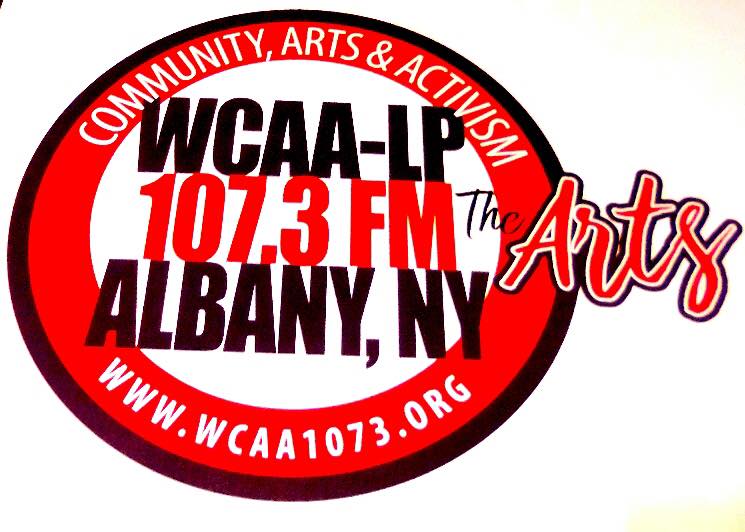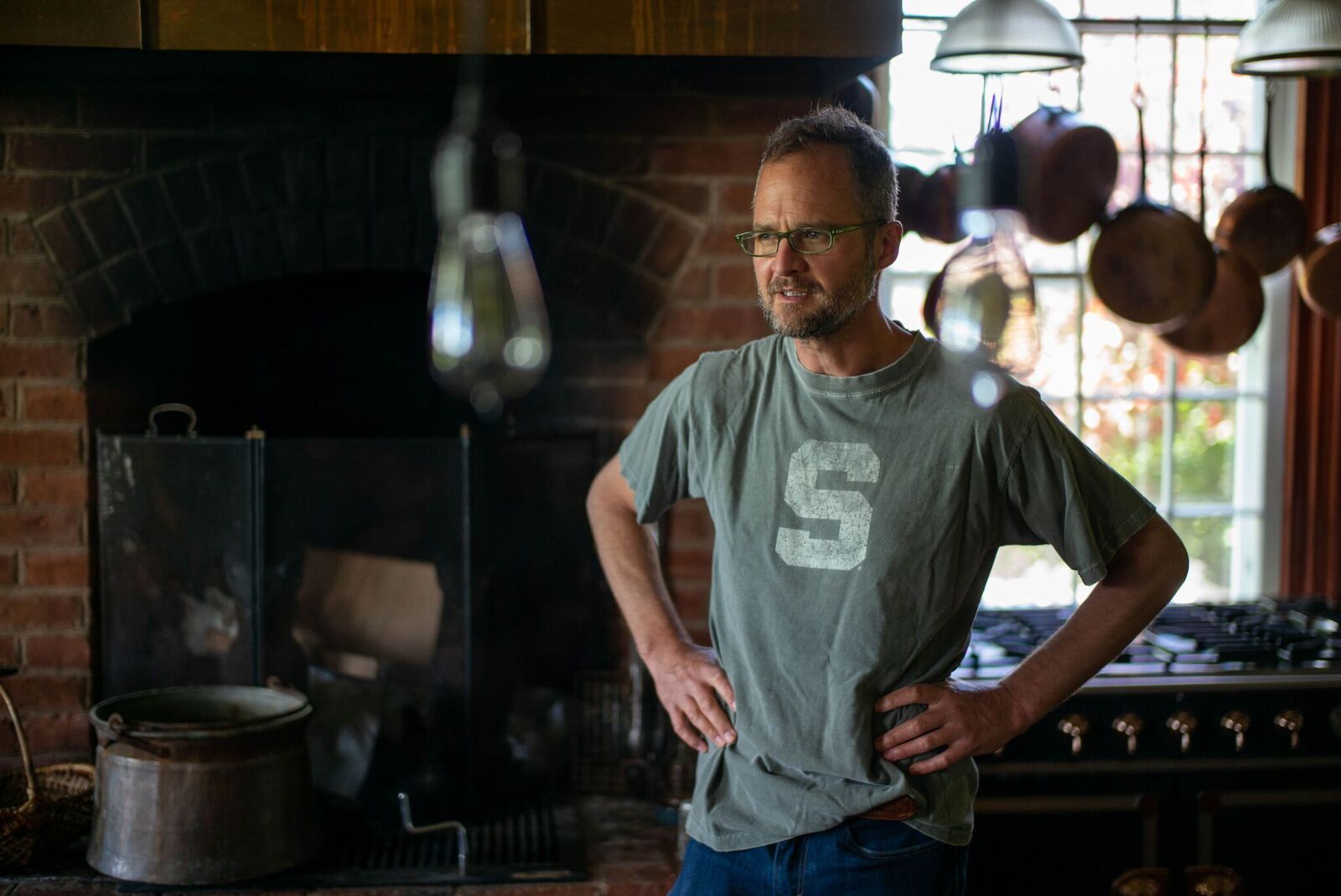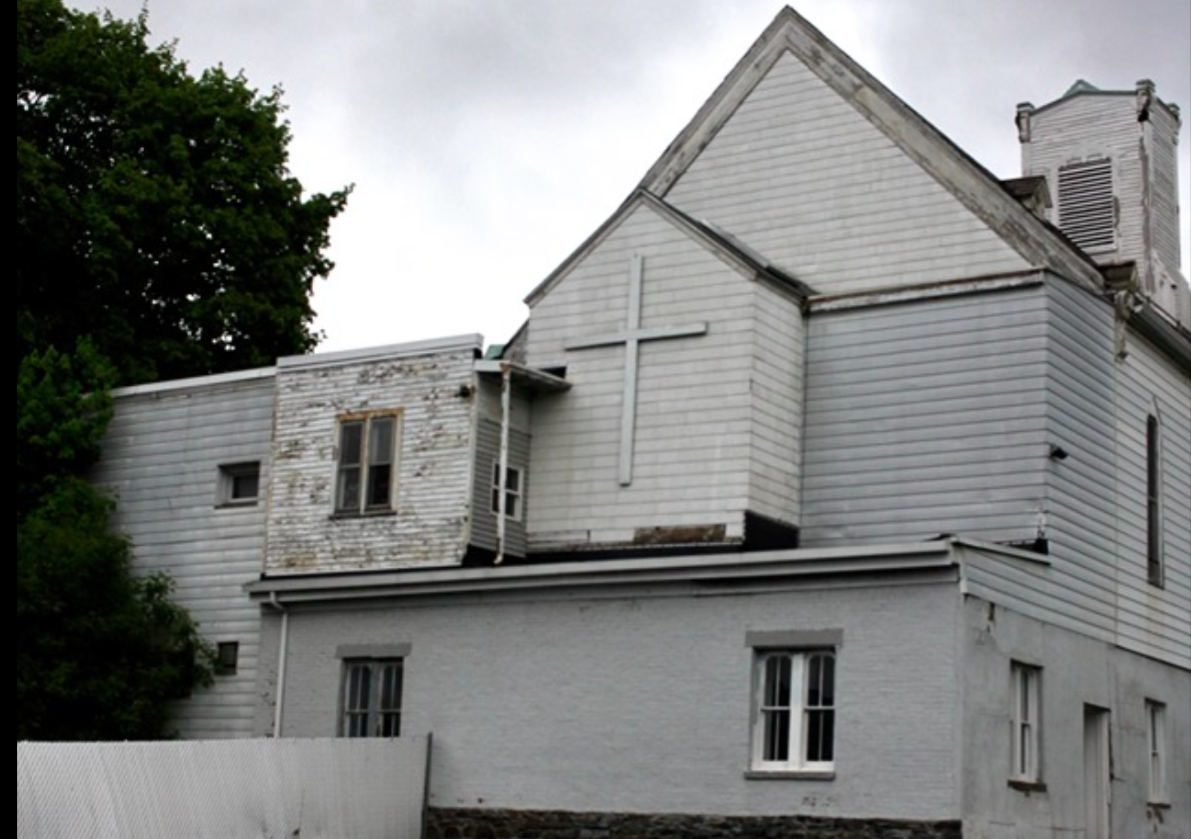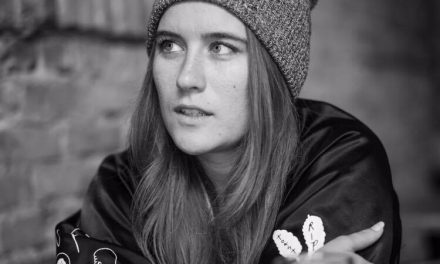On the corner of Albany’s Grand Street and Madison Avenue, the once-abandoned St. Anthony’s Church stands tall, a reminder of the neighborhood’s rich and storied past. Empty since 1973, the church houses Grand Street Community Arts, Inc. (GSCA), a nonprofit community organization founded in 2003 by Mansion neighborhood residents eager to revitalize their community with arts and culture.
From behind the walls of the historic church, WCAA-LP, a low-power grassroots radio station, broadcasts from a small radio and A/V studio in the basement.
WCAA, which stands for Community Arts and Activism, was established in 2017 by GSCA members. Its founders began their journey into community radio in an attempt to “create unity through the arts and educate on the power of community activism,” according to the station’s mission. Since then, WCAA’s schedule has grown from playing music broadcast by a national grassroots radio network to a diverse slate of community voices, ranging from local political aficionados to lovers of New Orleans blues.
But what is GSCA, and how did they end up launching a grassroots radio station?
Enter Larry Becker, one of the founders.
As longtime Mansion neighborhood residents, Becker and his family witnessed firsthand the long-term effects of the development of the Empire State Plaza in downtown Albany on the historic district in the 1960s and ’70s. As other historic neighborhoods were razed to make room for the Plaza, residents suddenly were cut off from the rest of the city. This led many residents to leave for the suburbs, eventually leading to St. Anthony’s closure.
When Becker and his family moved to the area more than 30 years ago, they, along with a number of other residents, were determined to “bridge the cultural and economic divides in the community” by forming a neighborhood association, which eventually morphed into GSCA. Becker credits the idea of restoring St. Anthony’s to its former glory to his daughter, an artist, who attended the Albany Free School — a well-known institution in the neighborhood — as a child. “It was her idea to kind of use the arts as a way to bring people together,” he explains. “And that has stayed with what Grand Street wants to do.”
Since GSCA’s founding, the nonprofit has spearheaded a variety of community-based projects and events serving the increasingly diverse Mansion neighborhood. These programs included Youth Organics! — YO! for short — a summer program that taught local children about agriculture, and YouthFX, a filmmaking program for urban youth that, after seven years, established itself as a separate organization.
But Becker and the rest of the original board had big dreams for GSCA’s potential impact, and they knew there was one thing they could do to amplify those dreams: start a radio station by their community and for their community. “The community we represent is really not heard on the commercial airwaves,” Becker says.
After securing a number of grants to complete the rehabilitation of St. Anthony’s – including funds from the New York State Council on the Arts that supported construction of the basement studio where the majority of the station’s shows are recorded — GSCA entered (and won) a competition geared toward nonprofit Low Power FM radio stations run by the Federal Communications Commission (FCC). But there was a catch: The stations had to be on the air by a specific date, and with only a small team of volunteers — including Becker and a mix of helpful local radio engineers like Al Davis and Musa Zwana — they missed the deadline.
Luckily, the FCC extended their deadline, but it was still a struggle to get everything ready in time. “We got on the air three days before the deadline expired,” Becker recalls.
Without a set schedule, the first WCAA broadcasts were mostly irregular streams of music pulled from the Pacifica Network mixed with the occasional live program. When Paul Smart, a former board member and current programming coordinator for WCAA, joined the team, one of his first goals was to create a more steady and diverse schedule for the station. “You can’t really build the listenership unless people know what they’re listening to at any given time,” he explains.
With the help of WCAA’s collaborators at WOOC — a community radio station run by the Sanctuary for Independent Media in Troy — Smart was able to beef up WCAA’s profile in the grassroots radio world by broadcasting WOOC’s regular program, “Hudson Mohawk Magazine.” Soon, Smart and the slowly-growing WCAA team built around established programs from WOOC’s broadcast to fill their daytime slots with unique shows hosted by professionals and amateurs alike, like Cynthia Pooler and Lovonia Mallory.
Mallory, a self-described “international social worker,” began her radio career at the Sanctuary for Independent Media. “I didn’t start out to be a producer or a host of a radio station,” she says. “I didn’t have dreams of being the next Oprah Winfrey or anything like that.” But her passion for social justice, world music and spirituality led her to host her own programs on WOOC. After meeting Smart at a meeting at the Sanctuary, Mallory decided it was time to add another program to her roster and started hosting “Sunrise Soul,” a spiritual talk and music show, which airs Sunday mornings on WAAC.
Mallory, whose WOOC programs are primarily talk shows, says that learning how to spin records and discovering new things about spirituality has been a highlight of her time at WCAA. “Finding the variety of music that’s out there in the world, and all these very talented people…it’s like opening up a box of candy and you bite into something, and you think it’s going to be something else,” she explains. “And it turns out to be something totally different.”
Pooler, on the other hand, has quite a bit of experience hosting podcasts and radio programs. Her most popular program, a political interview podcast called “Focus on Albany,” has released more than 1,000 episodes since it launched in 2013, and is aired on WCAA every Monday morning. She also hosts “Women Who Inspire,” a half-hour program on WCAA that profiles local women from a variety of backgrounds. “Low power radio stations give a voice to people who want to make a difference,” Pooler says.
For Dan Platt, host of the political program “3 Lefts with Dan Platt,” and WCAA’s volunteer coordinator, the station’s focus on community activism and the accessibility of the studio’s equipment are what originally piqued his interest. “It was an idea in my mind to start a podcast,” Platt remembers. “And what better way since my equipment was lacking to join a community radio station and share those resources and put in the time and work with others in a collaborative way?”
This collaboration among hosts, producers and engineers at WCAA is vital to the station’s continued success. Most important, though, is the empowerment of diverse members of the Albany community to tell their stories, regardless of their experience. “With some of these shows, I’m telling people, ‘Skip the editing, just learn how to record,’” Smart says. “And what it all does is allow people to just kind of go in and make radio.”
Although the nonprofit community radio industry never lacks challenges, as GSCA celebrates WCAA’s third year on the air, it’s clear that they’ve discovered something special that will ultimately have a lasting impact on the community.
“People who go on the air…they don’t have to be slick, they don’t have to be perfect,” explains Becker, who, as a novice producer and host started DJing a blues show, “Radio Free Albany,” in 2018.
“It’s community radio.”





